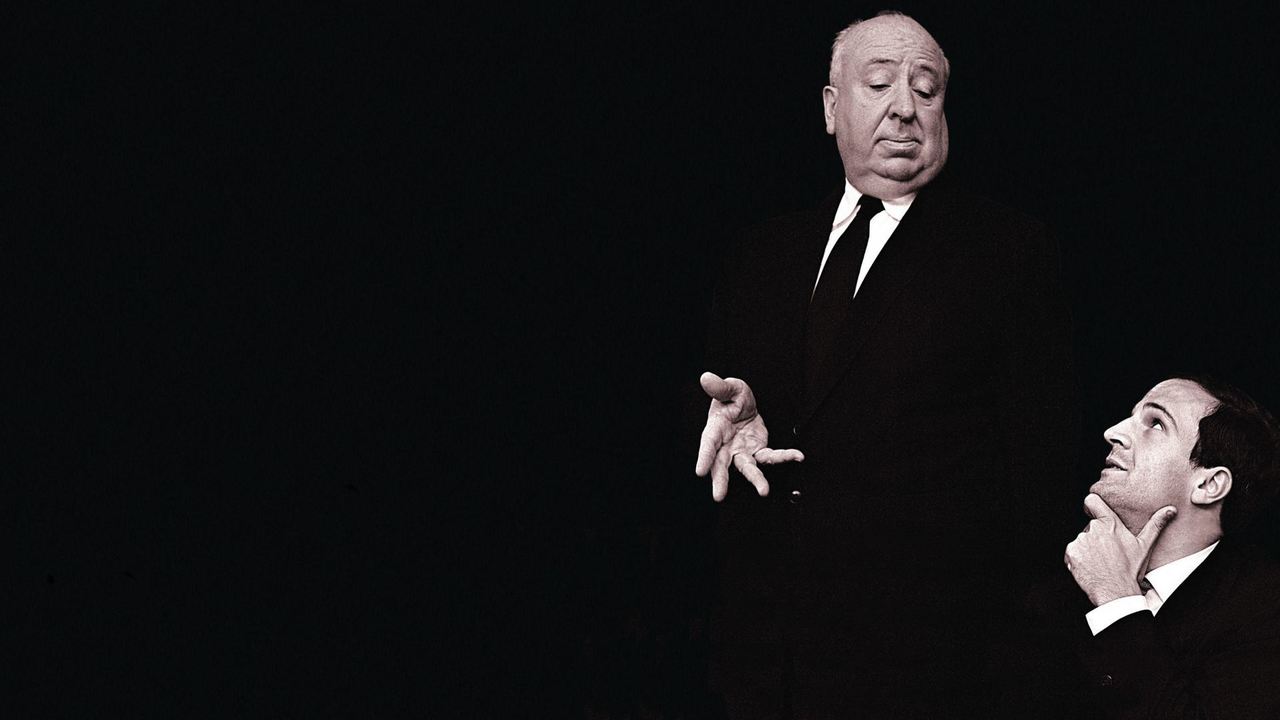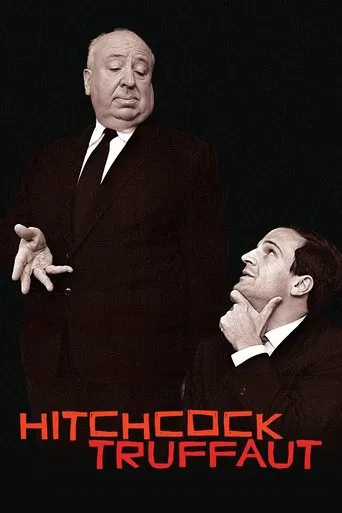

Tied for the best movie I have ever seen
... View MoreGood concept, poorly executed.
... View MoreA movie that not only functions as a solid scarefest but a razor-sharp satire.
... View MoreThere's a more than satisfactory amount of boom-boom in the movie's trim running time.
... View More"Hitchcock/Truffaut" is not a film for everyone. Film students and film nuts might love it but the average viewer will be pretty bored with the material. The material consists of using a series of interviews between Francois Truffaut and Alfred Hitchcock from 1966 in which the French director asked the British director about his craft. Originally, this resulted in a book with transcripts from the meeting but in this film you hear portions of the interview as well as hear from many famous filmmakers as well as see clips from various, mostly Hitchcock, films.To love this documentary, you really need to buy into the central assumption of this film...that Hitchcock was the greatest (at least by 1966) filmmaker ever. It seems that the many directors who participated in this agreed and loved to talk about Hitchcock in almost godlike terms. And, this hero worship seemed to me to be a double-edged sword. Sure, they could talk about the great things he did on film. But, since he was a god, he was perfect and any shortcoming on Hitchcock's part simply wasn't considered. No filmmaker is truly godlike and for me the documentary just seemed to lack real objectivity. For example, they praised "Psycho" again and again...even though a very similar film, the brilliant "Peeping Tom" came out the year before but was seen by few because it was banned. So, in this sense, Hitchcock really wasn't first to make this sort of movie....though this wasn't acknowledged. Overall, worth seeing, perhaps, but not a must-see for me.
... View MoreThis is a fascinating look at Alfred Hitchcock stemming from Francois Truffaut's legendary interviews with him, as well as their correspondence and deep friendship afterwards. The book that Truffaut would write about it became a groundbreaking reference book for filmmakers in 1966, and really opened the world's eyes to the artistry in Hitchcock's films. Despite his fame, Hitchcock was known as more as a popular director, and did not get enough credit for his genius. Truffaut, 33 years younger and acclaimed for his first few films which were viewed as 'artistic', idolized the man, and helped change that. The documentary includes Hitchcock and Truffaut's thoughts about clips from his great films, as well as a few snippets of Truffaut's own brilliant work. Just as importantly, it includes commentary from Martin Scorsese, Wes Anderson, Peter Bogdonavich, David Fincher, and many other American and French directors who were interviewed, providing real insight. Interesting to anyone who loves the art of cinema, and very interesting to those who love Hitchcock.
... View More1997:After watching Hitchcock's superb Young and Innocent my dad showed me a fantastic looking book called Hitchcock/Truffaut,which along with having an interesting interview on the title,was also filled with startling still images.2016:Seeing a few tantalising clips of their new shows,I decided to take a look at Channel 4 on Demand for new eps.Expecting to find Comedy titles on the front page,I was surprised to discover that a doc had recently been made about the book!,which led to me joining Hitchcock/Truffaut.The outline of the doc:Despite coming from a completely different world of cinema, François Truffaut finds himself to become a huge fan of fellow film maker Alfred Hitchcock. Interested in being able to discuss Hitchcock work in depth, Truffaut asks Hitchcock if he can do an extensive interview with him,and turn it into a book.Hiring interpreter Helen Scott to help,Hitchcock and Truffaut get set to meet.View on the film:Whilst strangely offering no discussion on what was a major collaboration for Hitchcock, directors Serge Toubiana & Kent Jones use Bernard Herman's classic scores to underline the pace of conversations,from the lively,snappy exchanges over Psycho,to the quiet contemplation over Vertigo. Bringing the voices of the directors off the page,Jones and Toubiana unveil an extraordinary amount of audio and visual archive,with the level that Hitchcock let his guard down being highlighted in Hitchcock asking for the tape recorder to be turned off for "off the record" stories. Allowing others to join in on this famous filmmaking encounter, Jones and Toubiana look at the impact of the book,and expand on some of the original conversations with energetic interviews from David Fincher and Martin Scorsese,as Truffaut meets Hitchcock.
... View MoreThe only section missing in the film is a discussion of the MUSIC in Hitchcock films especially the work and career of BERNARD HERMANN! Neither director touched on the scores for VERTIGO, PSYCHO, or THE BRIDE WORE BLACK. Others like WAXMAN and TIOMPKIN were also neglected! Soundtracks are an integral part of both director's work! Shame on you! Also there was no discussion of the score for TORN CURTAIN! Why no Hermann score and a substitute for one by by John Barry? You can write an entire book on film noir music or THE SOUNDS OF DARKNESS. Think about PSYCHO and the "shower scene" without music. It loses its chilling effect. What about James Stewart hanging from a roof gutter in VERTIGO? And that haunting "love theme" in VERTIGO, when Stewart is following Kim Novak in his car and the crescendo of waves breaking against the shore when they finally embrace? I can cite many more moments where music was crucial to a scene in Hitchcock's work, too many to enumerate here. I just had wished the directors and filmmakers would have discussed this important phase of both director's work. Dr. Ronald Schwartz at www.noir1937@aol.com Manhattan
... View More